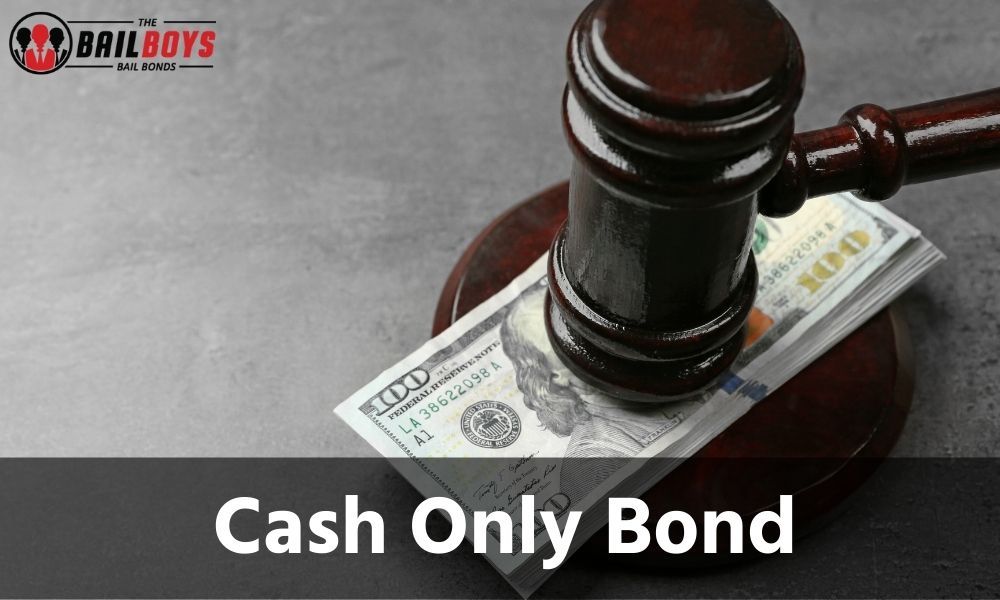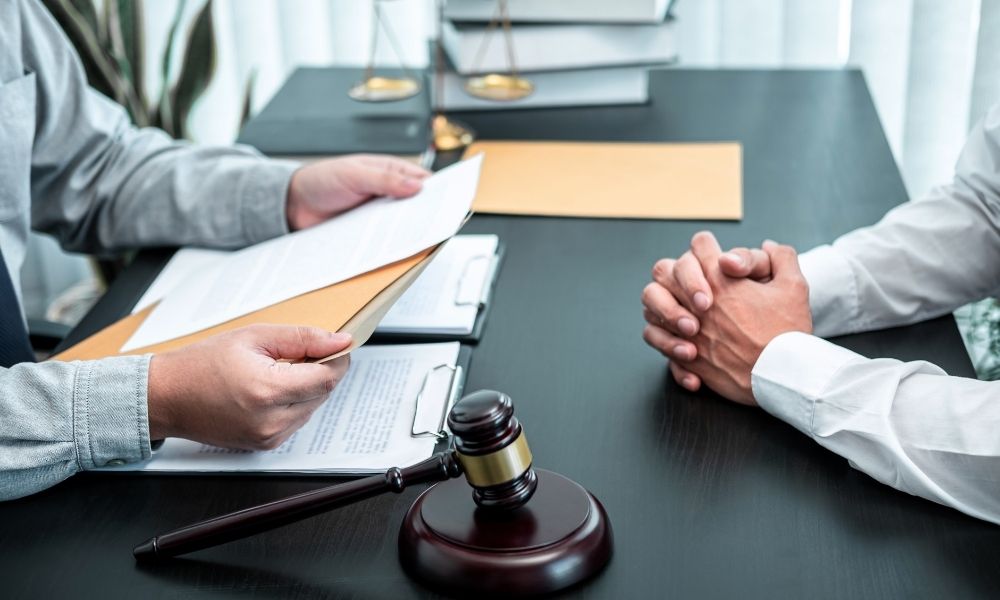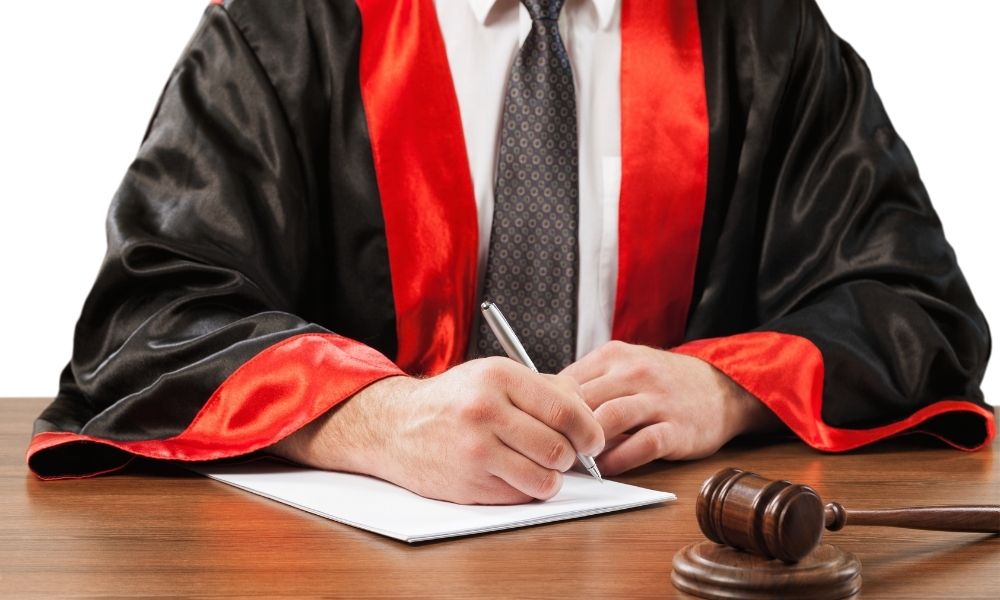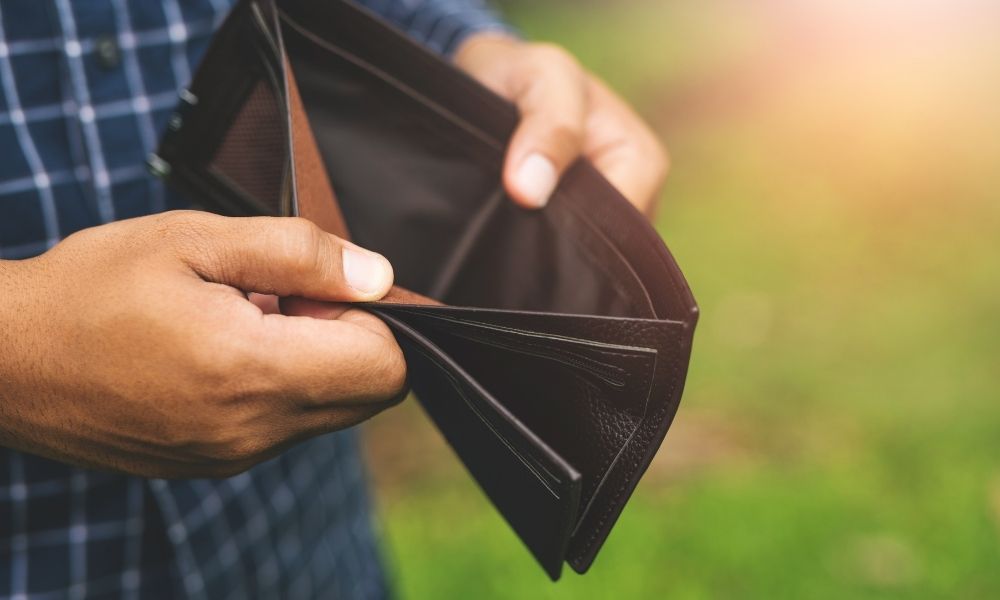
How to Get Help With a Cash Only Bond
Navigating the complexities of the legal system can be daunting, especially when faced with a “cash only” bond situation. The experts here at The Bail Boys break down everything you need to know about cash-only bonds and how you can get help with them.
What is a Cash Only Bond?
Often viewed as a more challenging hurdle to overcome, cash only bonds require the full amount to be posted in cash, leaving many individuals and their families feeling overwhelmed. This article aims to shed light on these types of bonds, and provide you with practical strategies to handle a cash only bond. We’ll delve into the intricacies of the bail system, explore potential alternatives, and guide you through the steps you need to take to secure your loved one’s release.
No idea on what to do if you are confronted by a cash only bond? Don’t worry; we’ve got you covered. Let’s take a look at all the factors relating to cash bonds in order to gain a better understanding.
Why Are Cash Bonds Issued?
A cash only bond is a more stringent sort of bail that is imposed in specific circumstances, such as when a judge determines that the defendant poses a flight risk.
Furthermore, a defendant’s prior acts, such as avoiding paying fines in past instances or a failure to appear in court at a scheduled appearance, may also result in this form of bail. A cash-only bond assures that the court is paid if the offender fails to appear for more court hearings in these situations.
Who Is Able to Post a Cash Only Bond?
A family member, the offender, or a third party (as in an associate or a bail bondsman who is able to deal in cash bonds) can post the cash-only bond money in most courts.
State regulations often allow a court to apply the cash bond payment to any punishments or fines imposed during the defendant’s sentence. This means that the bail money may not be repaid in full if the defendant is convicted of the offense for which they are charged. Furthermore, if the offender fails to appear in court for whatever reason, the entire amount is forfeited.

Can a bail bondsman help with a cash only bond?
In many jurisdictions, when a judge sets a “cash only” bond, it typically means that the full amount of the bail must be paid in cash. This is different from a surety bond, where a bail bondsman could post bail on your behalf for a fee, usually around 10-15% of the bail amount.
In the case of a cash only bond, a bail bondsman generally can’t help because the court is specifically requiring the full amount in cash. This kind of bail is often set when the judge believes the defendant is a flight risk, has outstanding fines, or has failed to appear in court in the past.
However, laws and rules can vary by location, so it’s important to consult with a legal professional or bail bondsman in your specific area to understand your options.
What Happens if You Don’t Pay a Bondsman?
Most bondsmen need premium payment and collateral receipt before posting any bail; however, certain bondsmen may accept premium payments or perhaps even post a bond without obtaining collateral. This technique exposes the bail bondsman to the possibility of not being paid.
The Bail Bond Agreement establishes a legal contract between all parties. Nonpayment of premiums/fees or failure to meet your collateral requirements may result in the defendant’s re-arrest and/or a possible civil lawsuit against the indemnitor/defendant, depending on the agreement you made with your bail bondsman.
How You Can Post a Cash Only Bond
The procedure for paying a cash only bond varies by state and even by county court; nevertheless, it’s usually as straightforward as posting the bond at the prison cashier’s window.
A bond receipt should be given to the payer; if you paid the bond with your own money and utilized a third party, ensure the receipt is provided in your name. If a refund is due, the individual named on the invoice receives it, so it’s critical to have the accurate name on the receipt.
What Happens After a Cash Bond Is Posted?
After being released from custody, you must comply with any terms that the bail stipulates, as well as attend all planned court proceedings. If you don’t follow the bail conditions or don’t show up in court, your bail bond is canceled, and a warrant is issued.
Additionally, if a judge orders the bond to be forfeited, the bond now becomes the possession of the applicable authority (county, city, or state) and is not repaid.

Can You Get Your Money Back After Paying Cash Only Bonds?
While many courts treat appearance bonds as appearance bonds and acquit defendants when the matter is resolved, others treat cash only bonds as purge bonds and utilize the money placed to pay fines.
Professional bondsmen’s bonds are far less prone to be attached by the courts in order to pay fines. The court is likely to convert bonds provided by the defendant or the defendant’s family and friends. Should you post your own bond, be sure you read everything you sign.
Say goodbye to your cash if you’re obliged to sign it over to the defendant.
When Is Your Bond Money Returned to You?
Any cash due to you should be recovered when the bond is exonerated if you deposited your money on a bail bond personally or through an agent.
After exoneration, the court should issue a check; if you employed a bail bond agent to post your funds, they should mail your bond reimbursement within 24 hours of receiving it from the court.
After a Bond has Been Posted, Can a Defendant Change Their Mind?
Bail bonds that are submitted to the courts or the prison become the court’s instant property and cannot be restored unless the courts’ have them exonerated. The accused should be released to the possession of the bondsman as the bail bond is posted.
If the Indemnitor no longer wishes to be liable for the bail bond, they can have the defendant arrested and the bond returned to the court by the bail bond business. The costs of detaining the accused and surrendering the bond are not insignificant; the bondsman may bill for the incarceration, bounty-seeking expenses, and any motions to acquit that the court may need.
Moreover, the cost of the detention and surrender can be equivalent to or greater than the initial bond’s purchase price; in some cases, the cost is definitely justified. Defendants who continue to breach the law or constitute a flight risk face the risk of having their bond forfeited in full by the court; re-incarcerating the defendant in these instances is sensible. Keep in mind that the court has the last say on whether or not to release you on bond.

How to Get Help With Cash Only Bonds
Dealing with cash only bail bonds can be quite intimidating if you have no idea what you are doing. Luckily, with the right legal representation and advice, you should be able to navigate your way through the process successfully. If you need further advice on navigating a situation with a cash bond or another type of bond, reach out to our team today. Should you consistently research how to get around cash only bail bonds, you should be much more confident in dealing with any cash bail bonds you encounter.


